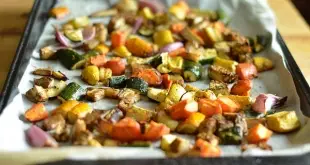So What the Hell is a Carb Anyway?
Ok, do you want the textbook definition or the practical one? Let’s start with the former. Here are the two best definitions I could find on what a carbohydrate is:
- A carbohydrate is an organic compound with the general formula Cm(H2O)n, that is, consisting only of carbon, hydrogen and oxygen, the last two in the 2:1 atom ratio. Carbohydrates can be viewed as hydrates of carbon, hence their name. (en.wikipedia.org/wiki/Carbohydrate)
- an essential structural component of living cells and source of energy for animals; includes simple sugars with small molecules as well as macromolecular substances; are classified according to the number of monosaccharide groups they contain (wordnetweb.princeton.edu/perl/webwn)
Yeah…I thought the same thing.
So in practical terms, when we speak of carbs we’re speaking of a few different types of foods, mainly:
- Starches like bread, pasta, chips, etc.
- Legumes and beans
- Vegetables
- Foods that contain natural sugars (fruit, milk)
But remember, these foods are sources of carbohydrates, not carbohydrates in and of themselves. This is an important distinction because we often demonize foods as “carbs” and overlook the other important health benefits of the food, such as vitamins, minerals and phytonutrients.
Carbs are abundant in foods and with good reason. Depending on the complexity of the carb (or, by the scientific definition, the number of monosaccharide groups they contain), your body can use carbs quickly to generate energy.
Our very first food as little humans is carb heavy. Whether you drank formula or your mother’s milk, it was mainly a source of a fairly simple carbohydrate (we’ll discuss simple vs. complex carbs tomorrow) – milk sugar. And when you began to drink cow’s milk that is also mainly a source of carbohydrates (True fact: milk has 50% more carbs than protein).
Our bodies need those carbs as “youngins” because we’re growing quickly and we need a LOT of energy to do so. While our need for carbohydrates (especially simple ones) reduces as we get older, we still need them for brain function and energy, to name a few uses.
But somewhere along the line carbs got a bad reputation, didn’t they? We became all about the Atkins diet and the South Beach diet, all campaigning for limited amounts of only complex carbohydrates.
Yet, we find that in countries whose diets center mainly on carbs like rice and fruit, there is nowhere near the level of obesity as in the United States. I’m not going to begin to theorize on that but will say that carbs alone are not the problem nor is limiting them the sole solution.
So, in summary, here’s what you need to know about what carbohydrates are:
- They are a quick and essential source of energy and cell structure
- They are found in starchy foods (like bread and pasta), legumes and beans and foods that contain natural sugars and fiber, like milk (containing lactose) , fruits (containing fructose) and vegetables
- All humans need some carbohydrates for our bodies to function normally
Tomorrow we’ll discuss simple vs. complex sugars and why that isn’t such a simple matter.
 Bariatric Foodie Play with your food
Bariatric Foodie Play with your food



